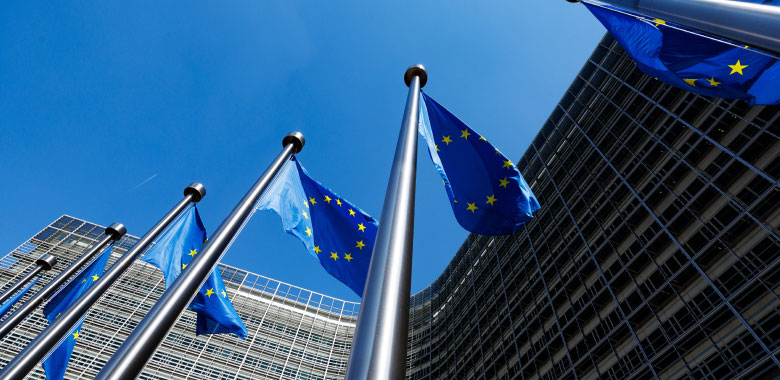The Sustainability Report is a tool through which companies measure the environmental, social and governance performance of their production activities, with the aim of communicating to stakeholders their commitment and concrete initiatives taken in the sustainable sphere.
This is a document that falls under the reporting and accountability activities related to ESG (sustainable reporting) objectives, the standards of which are dictated and updated by international industry regulations.
A practice that allows companies to transparently and clearly communicate their activities and their impacts in relation to environmental, social and economic aspects.
A practice that allows companies to transparently and clearly communicate their activities and their impacts in relation to environmental, social and economic aspects.
Drawing up the Sustainability Report provides a snapshot of the company’s present situation, tells stakeholders inside and outside the organization what has been done in the ESG sphere, how the actions taken have contributed to the achievement of the SDGs defined by the United Nations, and still puts in black and white the goals that in the sustainability sphere the company has chosen to pursue for the future.
Within sustainable reporting are various frameworks, i.e., standard corporate reporting templates, such as the social budget, integrated budget and sustainable budget.
Sustainability Reporting and, more generally, sustainable reporting have been the subject of numerous regulatory initiatives within International Organizations (such as Global Reporting Initiative) and Institutional Bodies (such as the EU Commission), with the intention of creating a socially responsible and sustainable corporate paradigm over the long term.
Demonstrating the institutional commitment to the promotion of a green-conscious corporate and social culture, as of this year-and by 2026- becomes mandatory to prepare a Sustainability Report for companies covered by the requirement.
In the next section we will look at the legal process that led to the introduction of this obligation.
European legislation on sustainable reporting
Sustainable reporting was introduced into the European legal system by two Directives:
- The Non-Financial Reporting Directive, or Directive 2014/95/EU, on the increase, facilitation and harmonization of information about sustainable business practices to be provided to stakeholders;
this Directive introduced arequirement for large companies to prepare the Non-Financial Statement.
- The Corporate Sustainability Reporting Directive (CSRD), or Directive no.
2464/2022, issued as part of the European Green Deal, which extended the sustainable reporting obligation to SMEs and medium-sized companies as well;
this Directive represented a turning point in regulatory policies on the promotion of sustainability, as it added the introduction of sector-specific standards to the extension of the reporting obligation.
As anticipated, both Directives are part of the larger European Green Deal project, a group of policy and legislative initiatives promoted by the European Commission that aim to achieve climate neutrality by 2050.
In January 2024, as the CSRD Directive comes into effect, the number of entities obligated to sustainability reporting and Sustainability Reporting increases.
Specifically:
Specifically:
- Publicly traded companies, and large entities ( more than 500 employees) with total assets of 20 million;
- S.r.l. and Public Interest Entities that meet the same size and asset requirements mentioned above;
- From January 1, 2025 large enterprises that have total assets of twenty million or an average number of 250 employees per year;
- From January 1, 2026 SMEs and other listed medium-sized enterprises.
When the Directive is transposed into national law, the Italian legislature could further extend the number of companies required to comply with the sustainable reporting requirement to include other types of economic organizations.
Sustainability reporting: the ESG factors and ESRS standards
The Sustainability Report makes efficient communication of information about the company’s business practices through transparency, clarity and adherence to the standards on the basis of which it is prepared.
The purpose of the Sustainability Report is not only about communicating the commitment to sustainability pursued by the company, but also about the practical application of ESG factors in internal organization and investment policies.
ESG factors, which stands for Environmental, Sustainability and Governance, guide corporate operations and their external impact, both from an environmental and social perspective.
They are factors that guide the investment choices of a company and its stakeholders because they measure and quantify the level of social and environmental responsibility an organization decides to take on.
They are factors that guide the investment choices of a company and its stakeholders because they measure and quantify the level of social and environmental responsibility an organization decides to take on.
Each Sustainability Report is prepared according to standards, the purpose of which is to standardize and harmonize the sustainable reporting systems adopted by companies nationally and internationally (an example is the guidelines issued by the Global Reporting Initiative).
Compared to previous legislation, the CSRD Directive introduced industry-specific standards: the European Sustainability Reporting Standards (ESRS), a set of 12 sustainability standards of which one part is dedicated to the relevant industry sector.
The first two standards are general in nature, while the next two cover factors such as: climate change, marine resources and biodiversity, resource use and circular economy, the role of workers within the business cycle, and business conduct.
The latter understood as both broad corporate culture and corporate social responsibility.
The latter understood as both broad corporate culture and corporate social responsibility.
Including specific information and prospectuses within the Sustainability Report is another step toward transparency of information, the basic concept of sustainability reporting.
The importance of the Sustainability Report: dual materiality
The Sustainability Report is a reporting document with a dual purpose:
- To inform stakeholders, stakeholders and society of the concrete commitment made by companies to sustainability through transparent communication about the impact of business activity on society and the environment;
- Obtain a measure of how much exogenous factors such as pollution, climate change, etc. may impact the business activity conducted.
This principle has been called the EU Commission’s principle of dual materiality and represents a new way of understanding corporate sustainability, that is: not only a policy of respecting the environment and external society, but also a way of achieving financial, economic and social progress for the company.
The Sustainability Report with Tecno: a responsible choice
Drawing up a Sustainability Report can also be a voluntary choice for those companies that wish to provide an informative overview about the sustainable measures they have undertaken, even though they are not among those required to report.
The benefit to be derived concerns the corporate image and the trust customers place in a transparent and sustainable brand, as well as the attractiveness of the company to investors, who are increasingly oriented toward green investment choices.
Best communicate your sustainable commitment,
Let’s create your Sustainability Report together.



